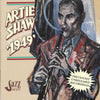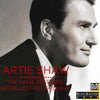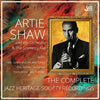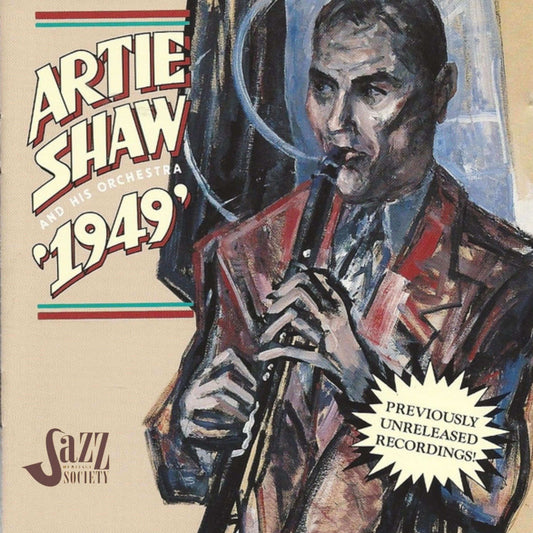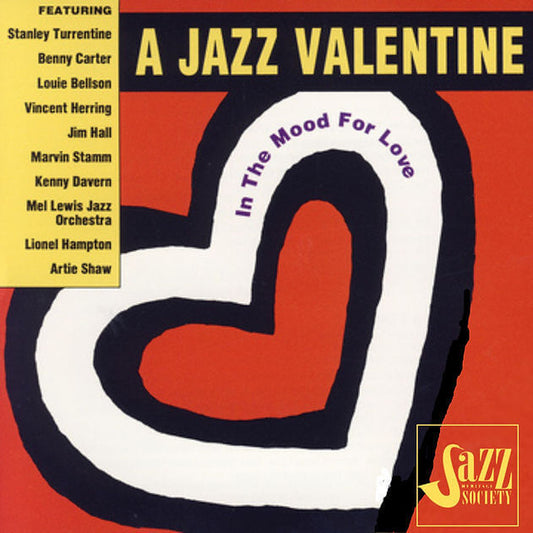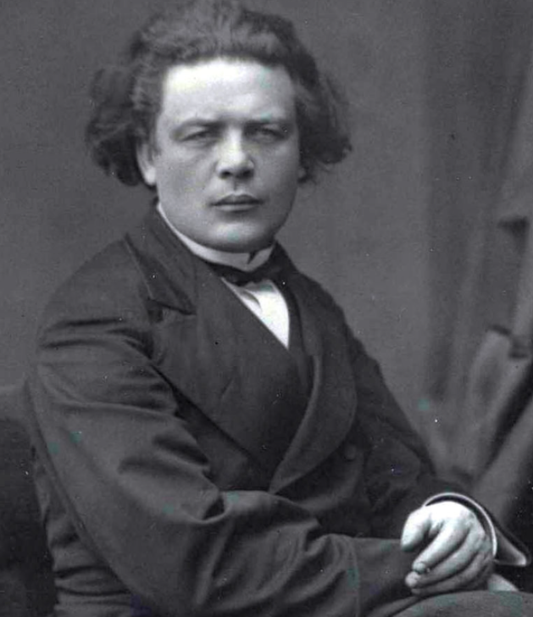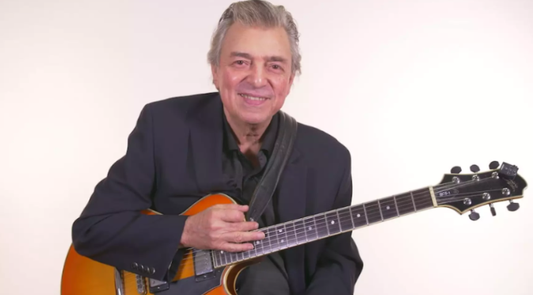Collection: ARTIE SHAW: THE JAZZ HERITAGE SOCIETY RECORDINGS
Artie Shaw (1910–2004) was an American clarinetist, composer, bandleader, and author, widely regarded as one of the greatest jazz musicians of the 20th century. Known for his technical brilliance and innovative approach to big band jazz, Shaw left an indelible mark on the genre during its golden age.
Born Arthur Jacob Arshawsky on May 23, 1910, in New York City, Shaw grew up in a Jewish family of Russian and Austrian descent. His family moved to New Haven, Connecticut, when he was seven, where he faced antisemitism that shaped his introverted personality. Shaw discovered music early, starting with the ukulele before transitioning to the saxophone at age 13. He worked at a deli to buy his first instrument and later switched to the clarinet, which became his signature instrument.
Shaw left home at 16 to tour with a band, honing his skills as a musician. By the early 1930s, he had established himself as a session musician in New York, performing with various bands and orchestras. His exposure to symphonic music during this period influenced his later arrangements.
Shaw’s breakthrough came in 1938 with his recording of Cole Porter’s Begin the Beguine. The song became a defining hit of the era, catapulting Shaw to stardom and rivaling the popularity of Benny Goodman, the "King of Swing." Shaw’s band, known for its innovative arrangements and swinging style, produced numerous hits, including Frenesi, Star Dust, and Summit Ridge Drive. He was also one of the first white bandleaders to hire a Black vocalist, Billie Holiday, breaking racial barriers in the music industry.
Shaw was musically restless and constantly sought new challenges. He experimented with blending classical and jazz elements, a precursor to the later "Third Stream" movement. His small jazz groups, the Gramercy Five, showcased his versatility and featured unique instrumentation, such as the harpsichord.
During World War II, Shaw served in the U.S. Navy, leading a morale-building band that toured the South Pacific. After the war, he returned to music but gradually withdrew from the industry, frustrated by the commercial pressures and his own perfectionism.
Shaw retired from music in 1954, never playing the clarinet again. He turned to writing, publishing an autobiography, The Trouble with Cinderella (1952), and several short novels. He also explored other interests, including farming and theater production.
Artie Shaw passed away on December 30, 2004, at the age of 94 in Thousand Oaks, California. His contributions to jazz and big band music remain influential, and his recordings continue to be celebrated for their depth and artistry.

